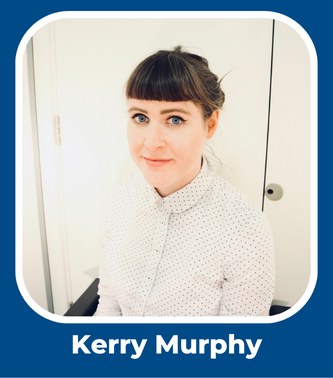
With over 19 years of experience in early education, Kerry is a positive and committed practitioner and consultant with a specialist knowledge in SEND and social & emotional behaviours. Her early career was spent in nurseries and schools working as an early years teacher and manager. During this time, Kerry worked with a variety of children and families who faced different challenges and her enthusiasm was driven from the collaborative work to build positive experiences for young children. Her progression into an early years consultant has enabled Kerry to develop a number of innovative training courses that are practical, fun and useful. Working in the early years isn’t always easy so Kerry has developed training that supports practitioners to consolidate their experiences and to reflect on their next steps. This not only supports the individual but forms the building blocks to a strong early years workforce.
Aims and objectives – Delegates will have opportunities to:
This course brings SEN support to life and is fun, practical and interactive. Practitioners will have the opportunity to think about their high-quality teaching and provision including how to build upon this to support children with different types of SEND. It will empower practitioners and give them the skills and tools to act in the first instance of early intervention. This course includes a free resource for building your own SEND toolkit.
Aims and objectives – Delegates will have opportunities to:
This course is interactive and thought-provoking. Of all areas of the EYFS, teaching behaviour can be challenging and frustrating. This course gives you the space to explore behaviour and the impact it may have but will also give you practical ideas for a consistent whole team approach that keeps the child’s health and well-being as the focus.
One prevalent myth in early childhood development is the belief that all children follow the same developmental pathway. According to this misconception, for a child to be deemed to be progressing well, they must exhibit typical and non-disabled learning and development. However, child development is inherently rich, diverse, and varied. This course explores the various ways children can develop, providing new perspectives and insights into divergent pathways of development.
Aims and objectives:
Themes likely to be covered in the session include:
Our understanding of autistic identity has vastly increased in the last decade due to autistic-led research and community advocacy. There is, however, still the dominant view that to be autistic is to be disordered, impaired, or in need of ‘fixing’. This course draws upon a neurodiversity affirming view of autism, and explores meaningful ways to affirm and honour autistic child development and identity.
Aims and objectives:
Themes likely to be covered in the session include:
Neurodiversity is becoming increasingly prevalent in our understanding of early childhood development and education. This course explores the key principles related to neurodiversity. You will consider how these can be translated into your everyday practice to ensure that every child and family feels affirmed and supported by the inclusion practices you adopt.
Aims and objectives:
There is a common misconception that paly does not come naturally to children who are neurodivergent and/or disabled and that they need to be taught how to play functionally, appropriately, and purposefully. This course debunks this myth by reimagining our understanding of play through a neurodiversity-affirming lens and embracing that play has infinite potentially. Our role as educators is to explore the diverse patterns of play and to facilitate their intrinsic meaning to children.
Aims and objectives:
As educators and specialists, we are contributing to a child’s biography of lived experiences. It is important that the way we document their early experiences supports positive self-esteem and what is developmentally meaningful to them. This course explores the different strengths-led ways we can document and child’s early learning experiences, and how goal setting should affirm unique developmental pathways.
Aims and objectives:
Aims and objectives – Delegates will have opportunities to:
Every child deserves the benefits that a meaningful relationship can bring. As a key person, your responsibility is to provide a secure base from which growth, exploration and resilience can occur. This course provides you with the underpinning theory of brain development and attachment and also offers a range of strategies and practices that will empower you and the child.
Enquire about making a booking for your upcoming training today: complete our brief form and we'll provide options, costings, and suggestions to meet your needs - or send us an email to discuss possibilities.
Complete booking enquiry formSend us an emailEarly Education
2 Victoria Square
St Albans
AL1 3TF
T: 01727 884925
E: office@early-education.org.uk